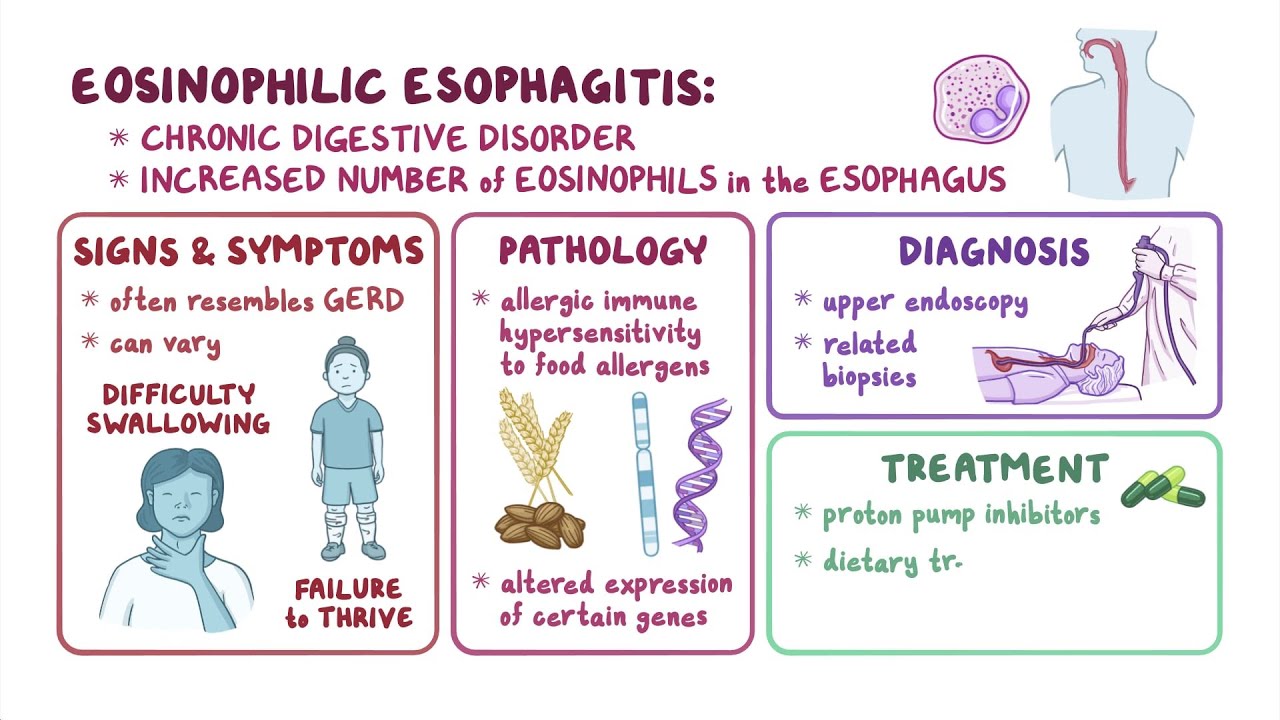
DiYES International School – Eosinophilic Esophagitis is a chronic immune system disease that affects the esophagus. This condition causes a type of white blood cell called eosinophil to build up in the lining of the esophagus. Over time, this leads to inflammation, tissue damage, and difficulty swallowing. Although it can affect adults, Eosinophilic Esophagitis is especially concerning in children. Many young patients suffer silently for months or even years before being correctly diagnosed. Symptoms vary depending on age, but they often include feeding refusal, nausea, vomiting, and food impaction. Because these signs mimic other common digestive issues, the disease often remains undetected in its early stages. Awareness is crucial for early intervention and treatment. Families must pay close attention to persistent feeding difficulties and digestive symptoms in their children.
Children with Eosinophilic Esophagitis may show a variety of symptoms that are easy to overlook. Common warning signs include refusal to eat certain foods, slow chewing, or taking a long time to finish meals. Eosinophilic Esophagitis can also cause children to avoid eating altogether out of fear of discomfort or choking. Parents may mistake these symptoms for picky eating or behavioral problems. In younger children, vomiting, abdominal pain, and failure to gain weight can be indicators. Teenagers often report difficulty swallowing or the sensation of food being stuck in the throat. These problems can increase emotional stress and create anxiety around mealtime. It is essential to keep track of patterns and speak with a pediatric gastroenterologist if these signs persist. Early diagnosis makes management easier and prevents further damage to the esophagus.
“Read about: Shocking Symptoms of Severe Worm Infection in Kids, Are You Missing the Signs?”
Although the exact cause of Eosinophilic Esophagitis remains unclear, researchers believe that allergens play a central role. Food allergens are considered the most common triggers. Milk, wheat, soy, eggs, and nuts are frequently linked to flare-ups in children. Environmental allergens such as pollen and pet dander may also contribute. Eosinophilic Esophagitis is not caused by a bacterial or viral infection. It is an immune response where the body mistakenly reacts to certain substances as harmful. The result is inflammation and thickening of the esophagus over time. Children with a family history of allergies, asthma, or eczema are at a higher risk of developing this disease. Genetic factors may influence how the immune system behaves in response to these allergens. Understanding the triggers can help families take proactive steps in managing the condition effectively.
Doctors use a combination of procedures to diagnose Eosinophilic Esophagitis accurately. The gold standard method involves an upper endoscopy and biopsy. A small camera is inserted through the mouth to examine the esophagus, and tissue samples are taken for microscopic evaluation. If eosinophils are found in high numbers, a diagnosis is confirmed. Additional allergy testing may be conducted to identify possible triggers. Blood tests, food elimination diets, and skin prick tests are useful tools in this process. Treatment often includes medications such as proton pump inhibitors or topical steroids to reduce inflammation. Dietary changes play a major role as well. Some children may need to eliminate specific foods entirely or follow an elemental diet. Ongoing monitoring is required to track progress and adjust treatment plans as necessary. The goal is to reduce symptoms and prevent long-term complications like scarring or narrowing of the esophagus.
“Read more: Experts Swear by This Seasonal Garage Hack, Your Cluttered Space Will Thank You!”
Managing Eosinophilic Esophagitis in daily life involves commitment and cooperation from the entire family. Meal planning becomes essential, especially when strict dietary restrictions are in place. Children may feel isolated or frustrated when they cannot eat the same foods as their peers. Parents need to provide emotional support while ensuring their child receives balanced nutrition. Regular check-ups help monitor progress and determine whether the current treatment is working. Keeping a food journal can also help identify patterns and possible triggers. Schools should be informed about the condition to support the child with safe meal options and understanding during mealtimes. Social events and travel require additional planning but can still be enjoyed with preparation. Connecting with support groups allows families to share experiences and tips. Although Eosinophilic Esophagitis is a chronic condition, children can lead full, active lives with the right care and management strategies.